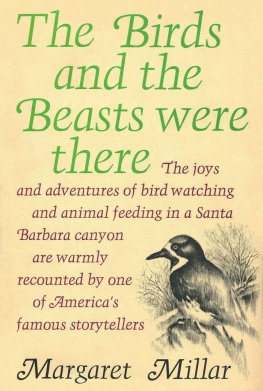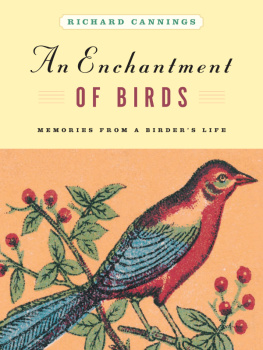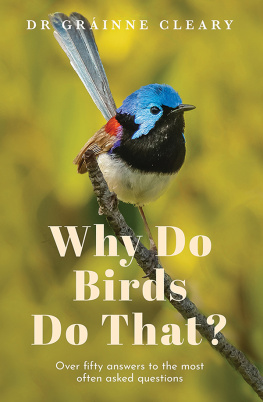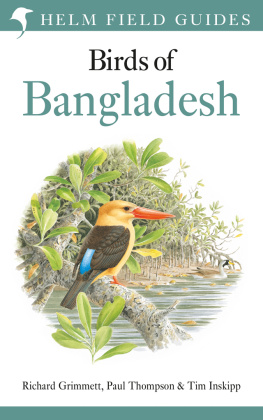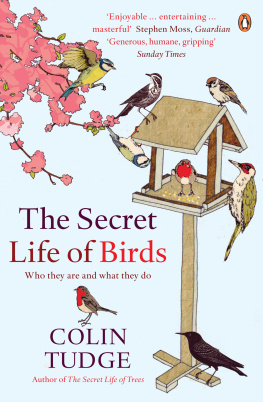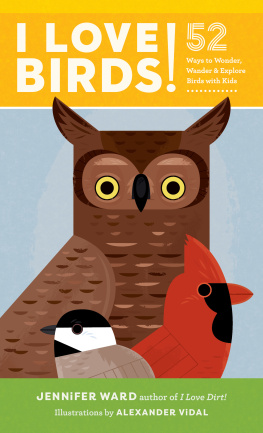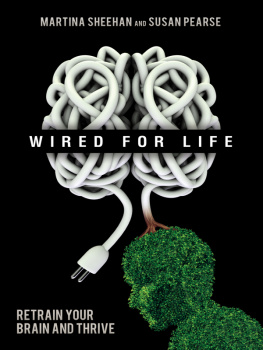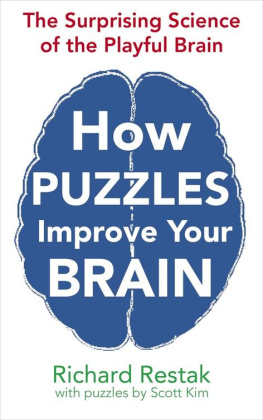P RAISE FOR
Bless the Birds
Bless the Birds is the book for our times. Its a splendid blend of landscapes, relationships, creative work, and spiritualityfinding meaning in life framed by an awareness of death. I have a dozen people I want to share this authentic, honest, hopeful memoir withand you will, too. Its a treasure.
Jane Kirkpatrick, New York Times best-selling author of Something Worth Doing
Its such a ripe time for this book about how to meet fear, loss, and sorrow with courage, grace, and most importantly, love.
Rosemerry Wahtola Trommer, author of Hush
Bless the Birds is spare and precise, and full of love and resilience. Its the story of two lovers taking a journey that none of us want to take: a journey toward parting. They walk it with eyes and hearts wide open, finding joy in their moments and showing just how much tenderness and grace are possible at lifes endingsso much love that the readers heart spills over with it just by accompanying them.
Priscilla Stuckey, author of Tamed By a Bear
Bless the Birds reminds us that dying is entwined with living, and we can do both with our hearts outstretched. Tweit shares the deeply personal story of the path she and her late husband walked, illuminating the fear, hope, bewilderment, rage, astonishment, laughter, exhaustion, gratitude, and joy when we open ourselves to life and death and love. This book is a gift for medical, palliative care, and hospice professionals as well as people navigating illness in their own lives.
Elizabeth Holman, PhD, palliative care psychologist
Bless
the Birds

Copyright 2021 Susan J. Tweit
All rights reserved. No part of this publication may be reproduced, distributed, or transmitted in any form or by any means, including photocopying, recording, digital scanning, or other electronic or mechanical methods, without the prior written permission of the publisher, except in the case of brief quotations embodied in critical reviews and certain other noncommercial uses permitted by copyright law. For permission requests, please address She Writes Press.
Published 2021
Printed in the United States of America
Print ISBN: 978-1-64742-036-9
E-ISBN: 978-1-64742-037-6
Library of Congress Control Number: 2020917545
For information, address:
She Writes Press
1569 Solano Ave #546
Berkeley, CA 94707
She Writes Press is a division of SparkPoint Studio, LLC.
Book design by Stacey Aaronson
All company and/or product names may be trade names, logos, trademarks, and/or registered trademarks and are the property of their respective owners.
F OR R ICHARD AND M OLLY
ALWAYS IN MY HEART

I am not saying we should love death, but rather that we should love
life so generously, without picking and choosing, that we
automatically include it (lifes other half) in our love.
Letter from Rainer Maria Rilke to
Countess Margot Sizzo-Noris-Crouy, 1923
I am now face to face with dying, but I am not finished with living.
Oliver Sacks, Gratitude
authors note
This book is a memoir, meaning it is my story, mined from my recollections, supported by data from journals, blog posts, and medical records. Ive done my best to be accurate and to portray the people and events involved truthfully. I recognize truth is a slippery concept, given that our brains revise our memories to suit our internal narratives. Hence this caveat: This is my take; others may remember these events differently.
Parts of this book appeared in different forms in the Denver Post, Western Friend, and High Country News, and on my blog. Much appreciation to editors Barbara Ellis at the Post and Betsy Marston at High Country News.
introduction

I pray to the birds because they remind me of what I love rather than what I fear. And at the end of my prayers, they teach me how to listen.
T ERRY T EMPEST W ILLIAMS , Refuge: An Unnatural History of Family and Place
T his story is about living in a time of dying. It is both prayer and love song, an invitation to walk in the light of what we love, especially when times are hard or heartbreaking. To open our hearts and go forward with as much grace as we can through lifes changes. To honor our cell-deep connection to all of the other lives with whom we share this planet. To celebrate the miracle of simply being, our capacity for love, which is both gift and salvation.
The time of dying is both personal and political. The personal is this: In 2011, I took care of both my mother and my husband through their deaths.
My mother was three months shy of eighty years old. Her death was in the statistical norm for her race (white), class (middle), and generation (she was born in 1931), though it was hastened by debilitating rheumatoid arthritis and the onset of Alzheimers disease. Norms or not, she was my mom, my fiercest defender and most thoughtful critic. I wasnt ready.
The death of my husband, companion, partner, and lover since graduate school was unthinkable. Richard had always been robustly healthy, something he took for granted until one morning when he saw thousands of birdsthe first sign, at age fifty-nine, of the brain cancer that would kill him. We journeyed with that illness for two and a quarter years, at first in the belief that his health, strength, and brilliant mind would carry him through. Finally, knowing they wouldnt, we chose to celebrate the end of our together by setting out on a literal journey, a three week road trip on the Pacific Coast. Along the way, I learned to be truly alive: to be present even in the worst moments, and to laugh, love, shout, and cry fearlessly. That learning is what we all need to thrive when our days turn dark.
The political is this: the times we live in. It seems that all we valuecivility, respect, truth, our trust in our institutions and our own safety, the interwoven community of life on Earthis dying. Or at least changing so radically that we no longer recognize what we once knew.
The personal is political. That feminist slogan of the 1970s reflects the truth that how we live our lives, our daily actions and interactions, are what shape culture and society. Who we are, how we treat others, what we buy, and how we spend our timeall of these become the political, a word that has its roots in politis, Greek for citizen. Thats us.
As a scientist trained in plant ecology, I have learned much from the photosynthesizing communities that green and shape Earth, cooperating as they breathe in the carbon dioxide that we and our carbon-consuming lives exhale, and breathing out the oxygen that sustains us. Plants are my teachers, the wild world my solace and inspiration. As climate change accelerates, I grieve for this unique planet, the only home our species has ever known. Past extinction events show that life will reemergeif not in the form we most prefer. As Rebecca Solnit writes in A Letter to a Young Climate Activist on the First Day of the New Decade: The natural world is strong and resilient. This does not mean that everything is fine. It does mean that given half a chance some of the natural world will survive, and giving that chance depends on us.
Thats where this story comes in. As part of giving life that chance, we humans need to let go of our phobias about death and learn to accept lifes other half. To go into our endings mindfully, with a lot less angst and wasted energy, and a lot more love and graceespecially we baby boomers, now coming into our home stretch.
Next page

